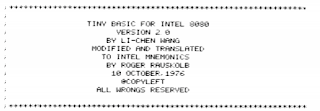Leadership is the ability to get extraordinary achievement from ordinary people...
I tried never judge managers as a third side, while not involved in work with them directly, as it is strange to judge people you don't know (in common). But the task must be done so... below are 3 managers, which belong to 2 roles in management.
In year 1991 he achieved post of head of Microsoft's OEM division and changed the market of OS's in next 6 years. He developed first Microsoft's Market Development Agreement in year 1994 and took risk to push hardware makers to accept the agreement and set up "monopoly".
The idea of agreement was that if the hardware maker wants the OEM license for a good price, he must promote and sell OS also, otherwise the price of license will be much higher. I.e. in accordance to Windows 95 MDA, the OEMs had to preinstall Windows 95 at lease on half of produced PC's , also they had to use Windows(Microsoft logo in advertisement). The Microsoft divided OEM's in several tiers, so even if you agreed to all MDA terms, you still could get higher price, if you doesn't belong to Tier 1 hardware maker...
As result, the OEM division, under management of Mr. Kempin increased revenue contribution almost 40%, from USD 2,5 billion in year 1996 to USD 3,48 billion in year 1997 (almost one third of net revenue of Microsoft). As long-term result, the Windows got 77,1% market share in year 2002, when Mr. Kempin retired from the company.
What about risk, the Microsoft got some antitrust trials, where Kemplin had to defend Microsoft's strategy.
But as power broker, he broke the market in favour of Microsoft and led his division to success by taking a risk to offer unpleasant terms to OEM's and play the monopoly.
That's why 3...not 2 managers. In my opinion, Larry Page and Sergey Brin are the coaches. The work in Google was based on motivation of employees, when the company is broken on many divisions with their own targets and styles and the management of mother company provides guidelines, shares information and steps in when something goes definitely wrong or when the outcome can be improved. Such approach gives feeling of freedom to teams. Also they found the way to promote and motivate creativity of employees by 20 percent time rule in year 2004. The idea was to give to employees part of work hours to focus on any project they want, without any management. Such innovations as AdSence, GMail and GoogleMaps were born thanks to this rule.
However, the rule started lost it's idea over time.(2).
So, every role (in management), from powerful leader to coach or teacher, can lead to success, if it was played by right actors and in right time and scene...




Comments
Post a Comment